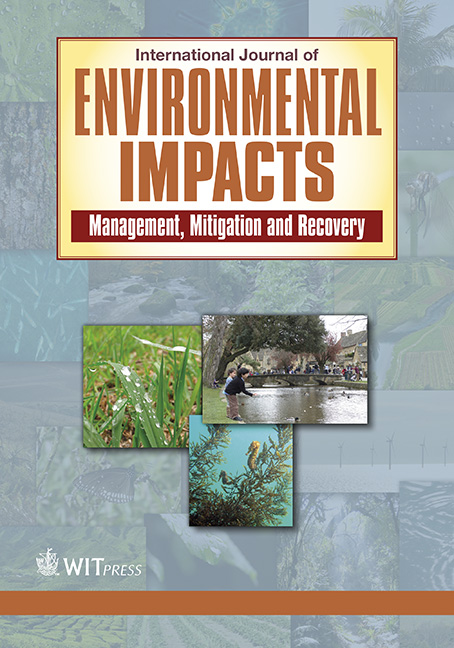A spaced-based concept in municipal solid waste management and monitoring in developing countries
Price
Free (open access)
Volume
Volume 1 (2018), Issue 4
Pages
8
Page Range
482 - 490
Paper DOI
10.2495/EI-V1-N4-482-490
Copyright
WIT Press
Author(s)
OLAIDE M. ADEROJU, GUERNER A. DIAS, GONCALVES J. ALBERTO
Abstract
Lack of proper framework, ineffective policies, limited basic facilities and weak technological approach in the solid waste management sector have raised environmental concerns in major cities of most developing countries. Also, uncoordinated disposal pattern of municipal solid waste in the society contributes to the emission of greenhouse gases and other forms of pollution that is detrimental to human health and the environment at large. In bid to achieve an aesthetic and sustainable environment, the study aims to promote the optimization of space-based technologies as a tool in municipal solid waste (MSW) management and sanitation monitoring using a conceptualized model. The approach employed the use of geographic information systems (GIS) and remote sensing (RS), building a geodatabase in municipal solid waste management as baseline data for the nation, radiofrequency identification (RFID), GPS and GPRS/GSM and other ancillary data in solid waste management and monitoring. The incorporation of geospatial data with technology and integrated communication technologies in MSW management and monitoring for developing countries will enhance environmental sustainability and budget planning for contingency plan to assist decision-makers build a sustainable platform in the solid waste sector.
Keywords
environment, GIS, management, monitoring, MSW, RFID.




